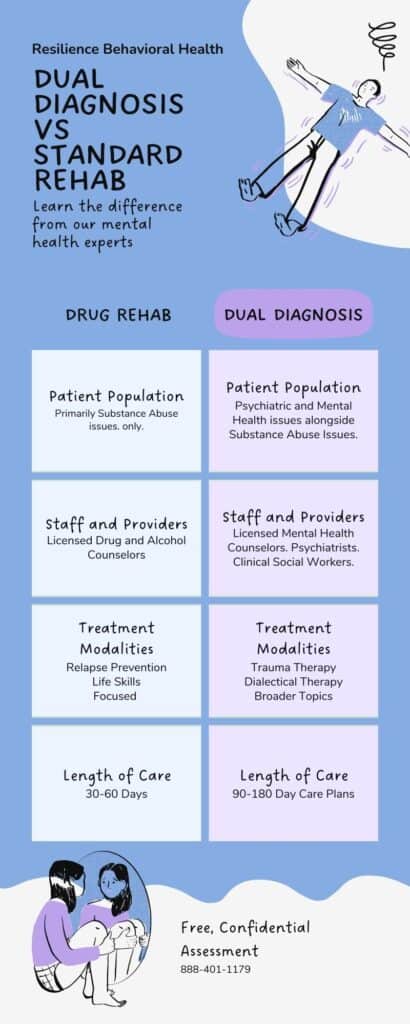Finding the Right Dual Diagnosis Treatment Center in Massachusetts
Choosing the right Dual Diagnosis Treatment Center in Massachusetts is a crucial step toward achieving holistic recovery for individuals facing the complexities of co-occurring disorders.
According to NIH, only 10% of the people with Dual Diagnosis disorders receive treatment for both conditions. Finding the right Dual Diagnosis Treatment Center can make all the difference in the journey toward lasting recovery.
Here’s a comprehensive guide to help navigate the process and find a center that aligns with individual needs.
Qualities Of A Top Dual Diagnosis Treatment Center In Massachusetts
Integrated Treatment Approach
Look for centers emphasizing an integrated treatment approach, combining mental health and substance use interventions seamlessly. The center employing this approach ensures that professionals from both disciplines collaborate on the treatment plan.
This collaborative effort leads to a more holistic understanding of the individual’s needs and enhances the effectiveness of interventions.
Accreditation and Licensing
Verify that the treatment center is accredited by recognized organizations, such as the Joint Commission or the Commission on Accreditation of Rehabilitation Facilities (CARF). Licensure ensures that the facility meets state and federal standards for providing quality care.
Their commitment reflects the center’s dedication to maintaining high-quality treatment practices.
Evidence-Based Practices
Evidence-based practices are rooted in scientific research and proven to be effective. Prefer treatment centers that use therapies like cognitive-behavioral therapy (CBT), dialectical behavior therapy (DBT), and motivational enhancement therapy (MET).
Thus, this demonstrates a commitment to utilizing interventions with a solid foundation in successful outcomes for co-occurring disorders.
Family Involvement and Support
Family involvement is pivotal in the recovery process. Look for a Dual Diagnosis Treatment Center in Massachusetts that recognizes the importance of family dynamics. Hence, they offer family therapy sessions.
Besides, education programs for families can help loved ones understand the challenges of co-occurring disorders, fostering a supportive and informed network.
Aftercare and Relapse Prevention
An effective treatment plan extends beyond the duration of the formal program. Investigate the center’s aftercare and relapse prevention initiatives.
A well-designed aftercare plan should include ongoing support, relapse prevention strategies, and connections to community resources. This is to ensure a smooth transition back into daily life.

Final Words
Choosing the right Dual Diagnosis Treatment Center in Massachusetts is pivotal for individuals navigating co-occurring disorders. By carefully considering these factors, individuals can embark on a transformative journey towards lasting recovery with the necessary support and tailored interventions.

